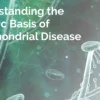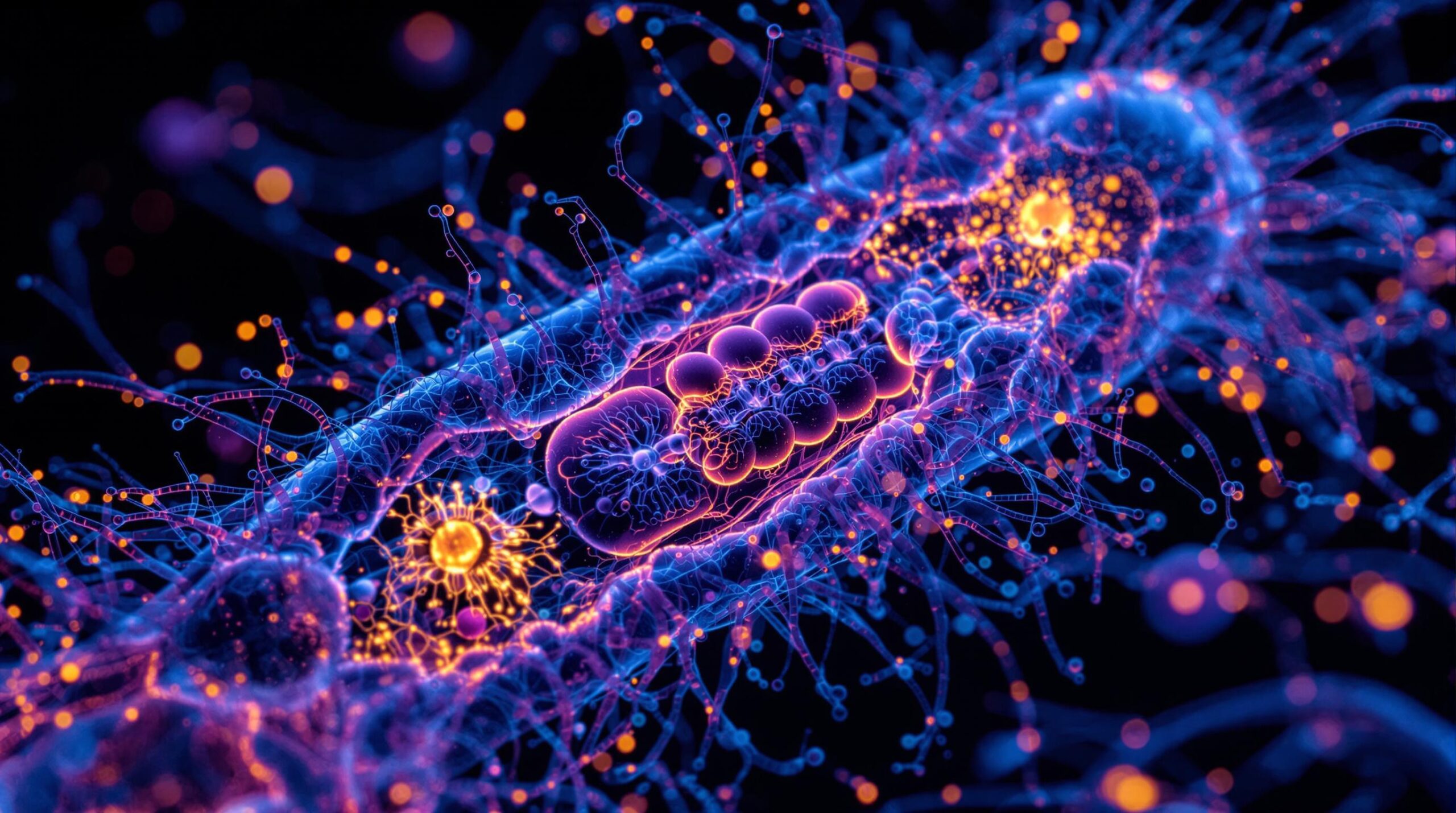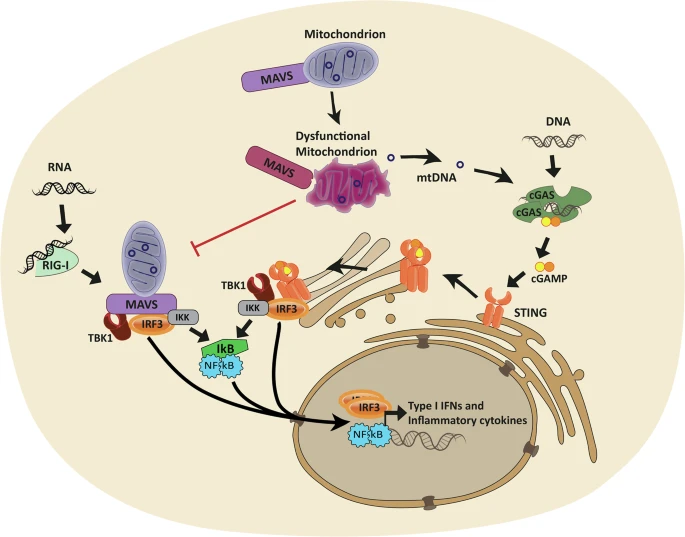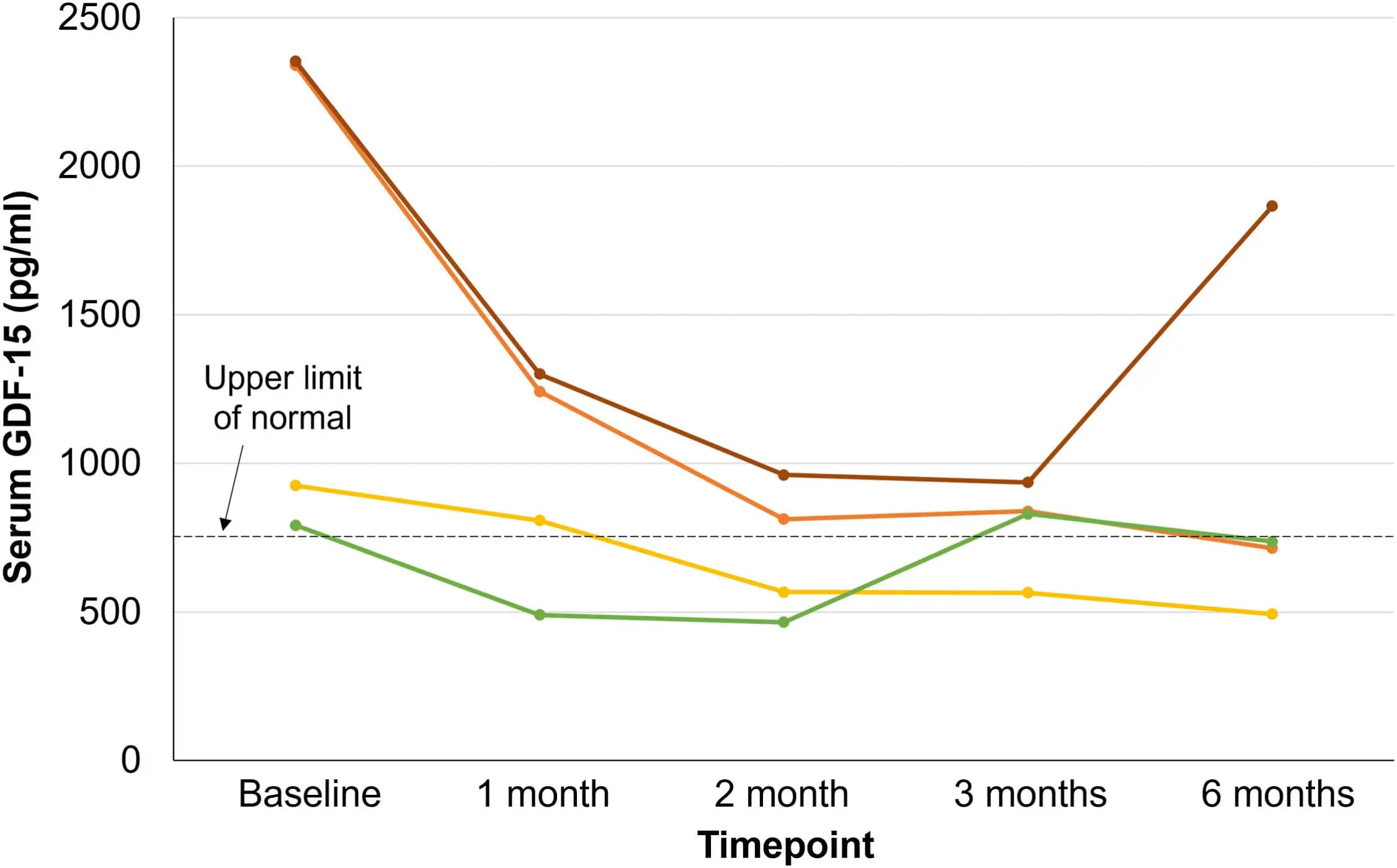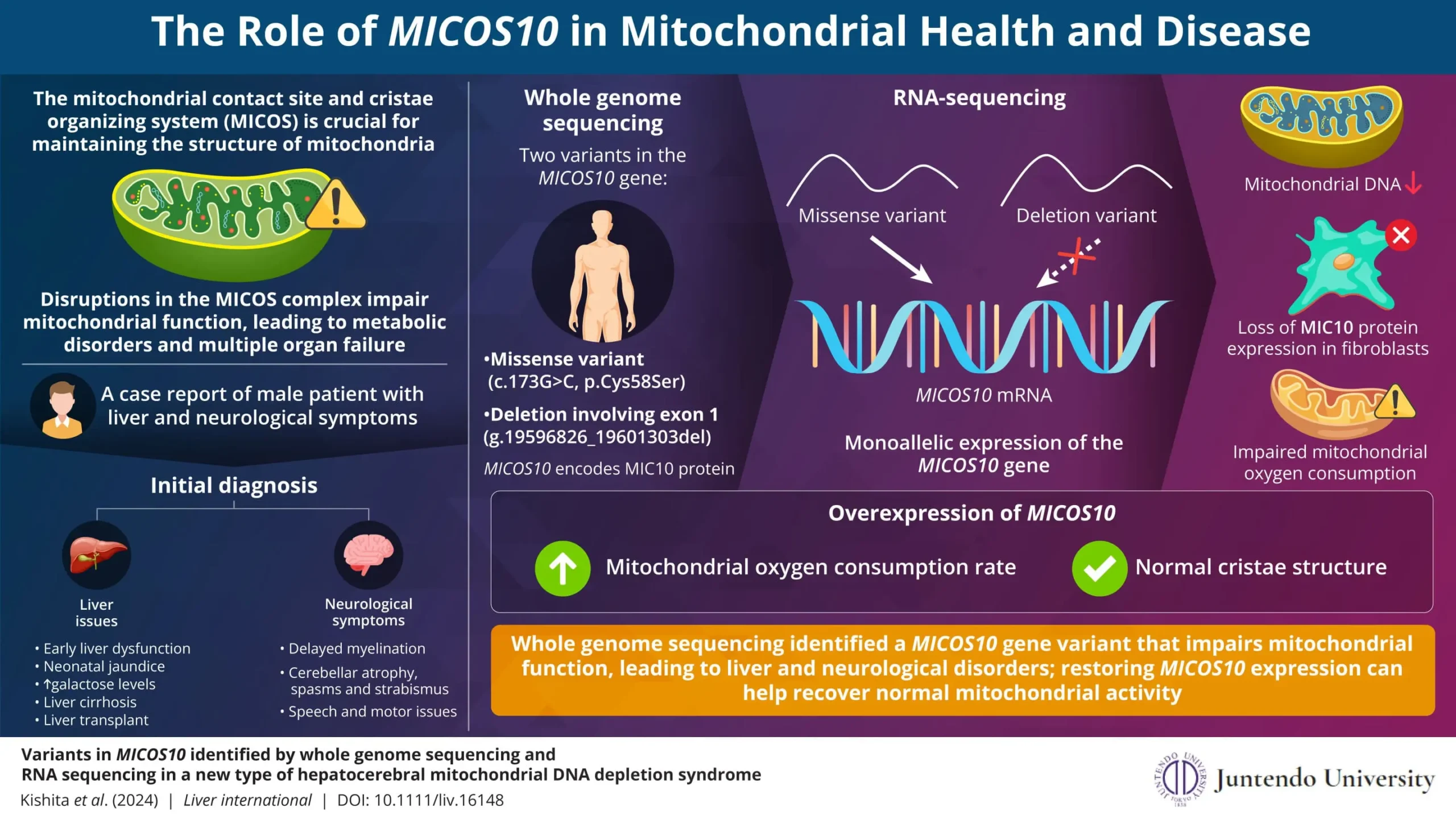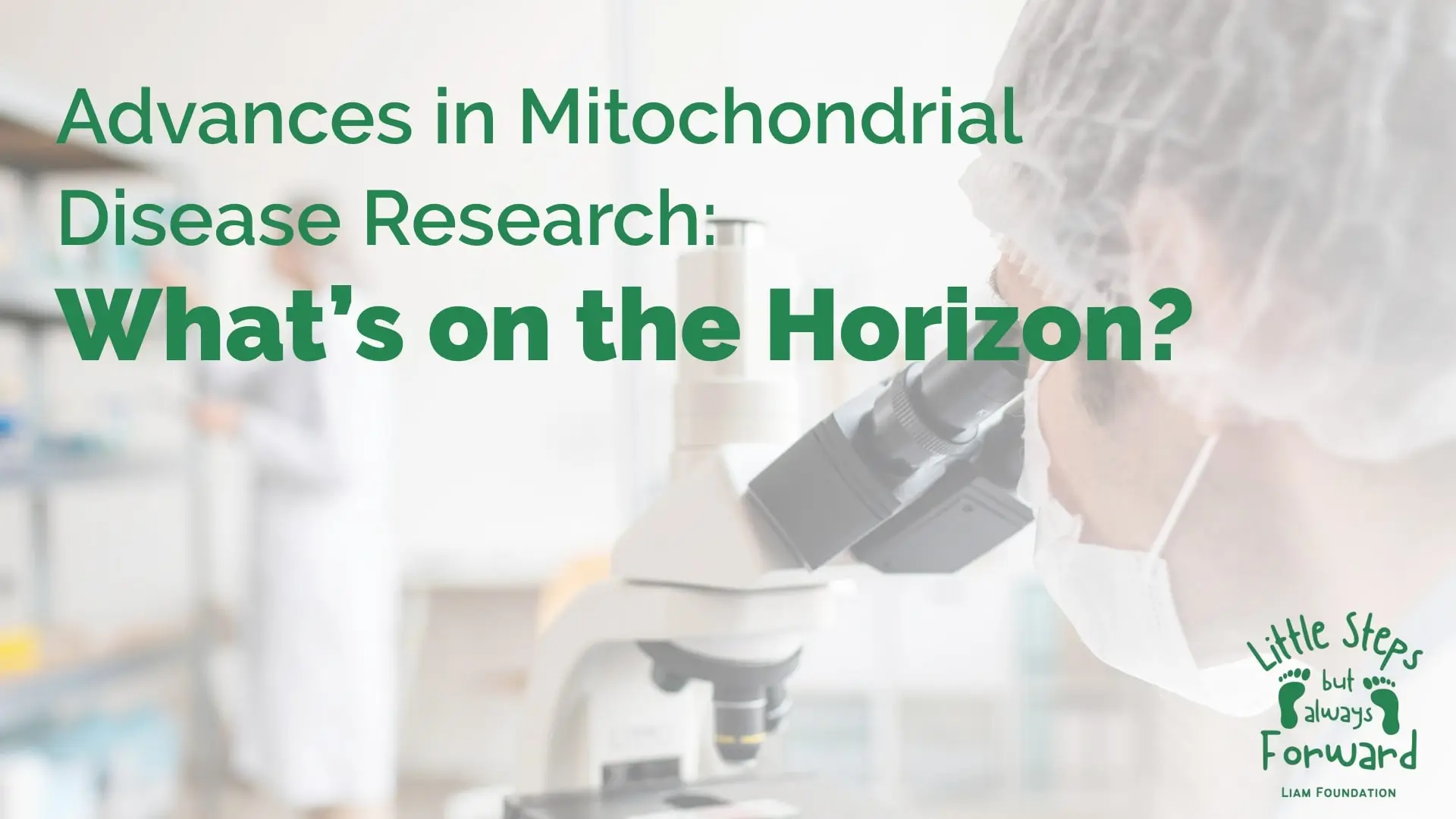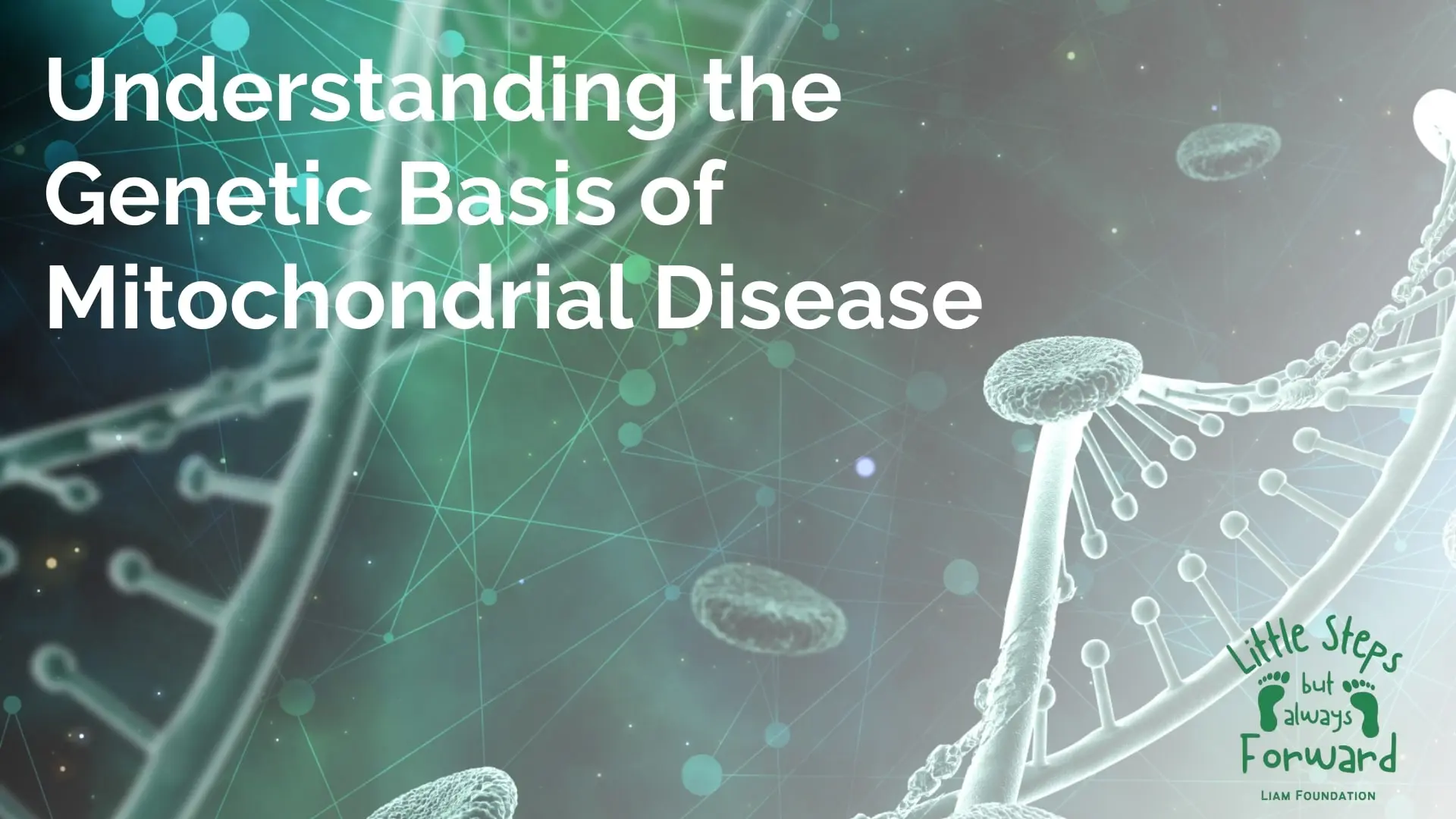Quick Summary : What You Need to Know: Mitochondrial diseases are genetic disorders that impair…

- August 26, 2024
- Comments Off on What is Mitochondrial Disease ? Impact, Challenges, and Hope for the Future
What is Mitochondrial Disease?
Mitochondrial disease is a group of disorders caused by dysfunctional mitochondria, the parts of the cell responsible for generating energy. Think of mitochondria as the power plants of the cells; when they don’t function properly, the entire body suffers. Mitochondrial disease can manifest in various ways, affecting multiple organs and systems, making it a particularly complex and challenging condition.
How Does Mitochondrial Disease Affect the Body?
Mitochondria are essential for producing adenosine triphosphate (ATP), the energy currency of the cell. When these structures fail, the cells don’t have enough energy to function properly. This can lead to a range of symptoms depending on which cells in the body are affected. For instance, if the mitochondria in muscle cells are affected, a person may experience muscle weakness or fatigue. If brain cells are impacted, it can result in neurological issues such as seizures or developmental delays.
Common Symptoms of Mitochondrial Disease
The symptoms of mitochondrial disease are incredibly varied, making diagnosis challenging. Some common symptoms include:
- Muscle Weakness and Pain: Often, the muscles are among the first to be affected, leading to weakness, cramping, and pain.
- Neurological Problems: This can include seizures, developmental delays, learning disabilities, and in some cases, stroke-like episodes.
- Organ Failure: Mitochondrial disease can lead to the failure of vital organs such as the heart, liver, or kidneys.
- Gastrointestinal Issues: Patients may experience difficulty swallowing, vomiting, diarrhea, or constipation due to digestive system involvement.
For a more detailed overview of symptoms, you can refer to resources such as the United Mitochondrial Disease Foundation which provides extensive information on the subject.
The Impact of Mitochondrial Disease on Daily Life
Living with mitochondrial disease can be incredibly challenging, not only for the patient but also for their families. The unpredictable nature of the disease, coupled with the progressive worsening of symptoms, makes daily life a constant battle. Many patients require ongoing medical care, therapy, and assistance with daily activities.
Fatigue and Energy Management: One of the most significant impacts is chronic fatigue. Patients often struggle to balance energy levels throughout the day, leading to limitations in work, school, and social activities. This fatigue isn’t just about feeling tired; it’s a deep, overwhelming exhaustion that can’t be remedied by rest alone.
Emotional and Psychological Impact: The emotional toll of living with a chronic, life-threatening disease is immense. Patients and their families often face anxiety, depression, and feelings of isolation. It’s not uncommon for families to feel overwhelmed by the constant need for medical care and the uncertainty of the future.
Social and Financial Struggles: The financial burden of mitochondrial disease is significant. The cost of treatments, medications, and supportive care can be overwhelming, particularly since many treatments are not covered by insurance. Additionally, the disease often necessitates a reduced ability to work, further straining financial resources.
The Genetic Roots of Mitochondrial Disease
Mitochondrial disease is primarily genetic, meaning it is inherited from parents. However, the inheritance pattern can be complex. Some forms of the disease are passed down through mutations in nuclear DNA (inherited from both parents), while others are due to mutations in mitochondrial DNA (inherited only from the mother).
Inheritance Patterns and Genetic Counseling
Given the genetic nature of the disease, genetic counseling is often recommended for families affected by mitochondrial disease. This can help them understand the risks of passing the condition to future generations and explore options such as preimplantation genetic diagnosis (PGD) if they are planning to have children.
Advances in Genetic Research
Research into the genetic basis of mitochondrial disease is ongoing, with scientists working to better understand the mutations that cause these disorders. This research is crucial, as it not only improves our understanding of the disease but also paves the way for potential treatments and cures. For example, gene therapy, which involves replacing faulty genes with healthy ones, is an area of significant interest and hope in the field.
For the latest updates on genetic research related to mitochondrial disease, consider following resources such as NIH’s National Institute of Neurological Disorders and Stroke.
Current Treatments and Emerging Therapies
Currently, there is no cure for mitochondrial disease, and treatments are primarily focused on managing symptoms and improving quality of life. However, there are several emerging therapies and interventions that offer hope.
Symptomatic Treatments
Treatment typically involves a multidisciplinary approach, with specialists in neurology, cardiology, gastroenterology, and other fields working together. Common treatments include:
- Medications: To manage symptoms such as seizures, pain, and gastrointestinal issues.
- Physical Therapy: To help maintain muscle strength and mobility.
- Dietary Supplements: Some patients benefit from supplements such as coenzyme Q10, L-carnitine, and riboflavin, which may help support mitochondrial function.
Experimental Therapies and Clinical Trials
Researchers are exploring several experimental therapies, including:
- Gene Therapy: A promising area of research, gene therapy aims to correct the genetic mutations that cause mitochondrial disease.
- Stem Cell Therapy: This approach involves using stem cells to replace or repair damaged cells.
- Targeted Drug Therapies: Scientists are working to develop drugs that specifically target the defective mitochondria.
Patients interested in exploring experimental treatments should consult with their healthcare providers and consider participating in clinical trials. Information on ongoing trials can be found at ClinicalTrials.gov.
The Importance of Support and Community
Support from family, friends, and the broader community is vital for those living with mitochondrial disease. Support groups, both online and in-person, can provide a sense of community and a platform to share experiences, advice, and encouragement.
How the Liam Foundation Supports Families
The Liam Foundation is dedicated to supporting families affected by mitochondrial disease through various initiatives:
- Financial Assistance: Helping families cover the costs of treatments and care.
- Resource Provision: Offering information and tools to help families manage the day-to-day challenges of the disease.
- Community Building: Creating opportunities for families to connect with others who understand their journey.
How You Can Help
There are many ways to support those affected by mitochondrial disease. Donations to organizations like The Liam Foundation go directly towards funding research, providing family support, and raising awareness. Volunteering your time, participating in fundraising events, and spreading the word about mitochondrial disease are other impactful ways to make a difference.
You can learn more about how to get involved by visiting our donation page or by contacting us directly.
Looking Forward: Hope on the Horizon
While living with mitochondrial disease is undeniably challenging, there is hope. Advances in research, increased awareness, and the unwavering support of the community all contribute to a brighter future. Organizations like The Liam Foundation are at the forefront of these efforts, working tirelessly to improve the lives of those affected and ultimately find a cure.
The Role of Research in Shaping the Future
Continued investment in research is essential. With each breakthrough, we move closer to developing treatments that can halt or even reverse the effects of mitochondrial disease. The future holds promise, and with ongoing support, we can make that promise a reality.
Conclusion
Mitochondrial disease is a complex and challenging condition, but with greater awareness, research, and community support, we can make significant strides in improving the lives of those affected. The Liam Foundation is committed to this cause, and we invite you to join us in the fight against mitochondrial disease. Together, we can bring hope to those who need it most.
Share This:
The Liam Foundation
Related Posts
The COVID-19 pandemic, caused by the SARS-CoV-2 virus, has led to significant global health challenges.…
A groundbreaking clinical trial led by the Research Institute of the McGill University Health Centre…
Mitochondrial DNA Depletion Syndrome (MTDPS) encompasses a group of rare genetic disorders characterized by a…
The Liam Foundation stands as a beacon of hope for families grappling with the challenges…
Mitochondrial disease treatments have long been a challenging frontier in medical research. As we delve…
Mitochondrial disease symptoms are complex disorders that can affect people of all ages, from infants…
To appreciate the significance of recent Mitochondrial disease research advances, it’s essential to understand the…
Understanding the Genetic Basis of Mitochondrial Disease, Mitochondrial disease is a group of disorders caused…
Mitochondrial disease is a group of disorders caused by dysfunctional mitochondria, the parts of the…

